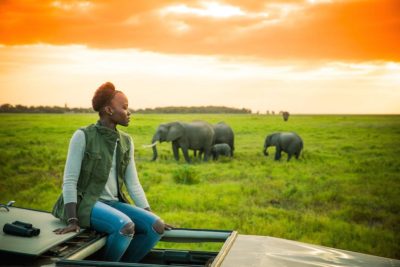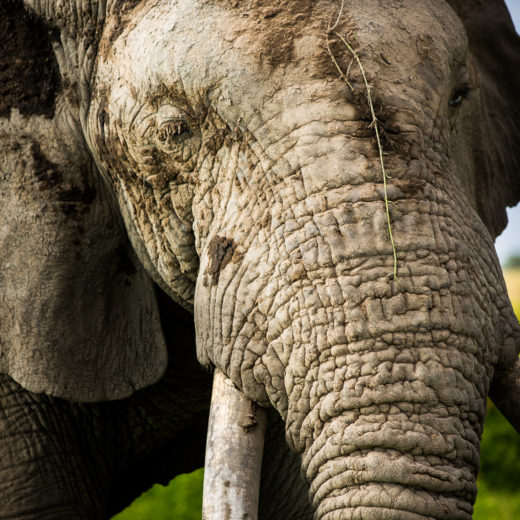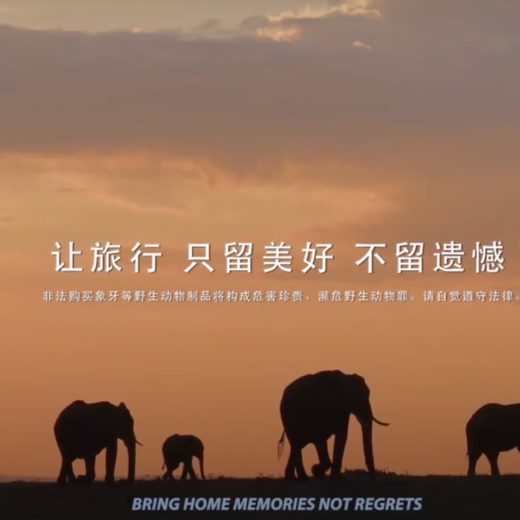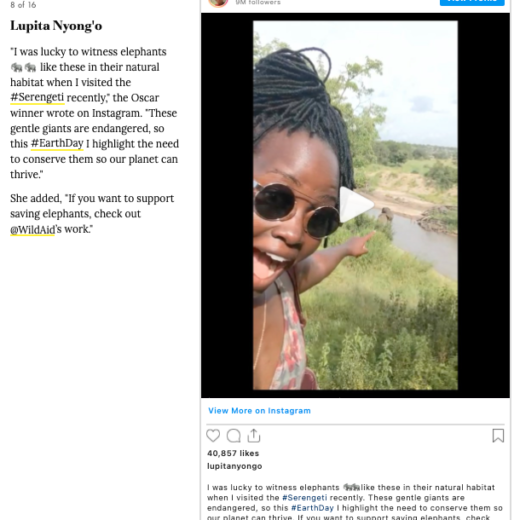
WILDAID AND AFRICAN WILDLIFE FOUNDATION
NAIROBI (April 27, 2016) — In advance of Kenya Wildlife Service’s history-making ivory burn on April 30, popular Afro-pop band Sauti Sol and local radio personality Caroline Mutoko have launched an anti-poaching “hearts and minds” campaign with Oscar-winning actress Lupita Nyong’o.
Created by Kenya-based African Wildlife Foundation (AWF) and WildAid, the “Poaching Steals from Us All” campaign uses public service announcements, documentary shorts, billboards and social media to urge support for conservation and reporting of wildlife crime. With an initial focus on elephants, the campaign will grow to cover other threatened species, such as lions, rhinos and vultures.
“Many of us know about the poaching crisis, but too many assume that someone else — the government or a conservation group — will take care of it,” said Daudi Sumba, Vice President of Program Design for AWF. “If we lose our elephants and other wildlife to this threat, it will not be because we lacked the knowledge or tools to save them, but because we all failed to take ownership of our wildlife heritage. None of us can afford to be bystanders when so much is at stake.”
In a 2015 campaign survey of 2,000 Kenyans, more than 96% felt wildlife was important for national identity, heritage and the economy. Furthermore, 87% said the government should do more about poaching, and three-quarters of respondents said losing elephants would matter to them a great deal. There was little difference in attitudes about wildlife between urban and rural Kenyans.
“Clearly the vast majority of Kenyans strongly support conservation and understand its economic value. But our messages are designed to encourage a more active involvement in combating wildlife crime, and we hope that this will extend greater protection to animals like pangolins and vultures that are not as charismatic as elephants and rhinos,” said Peter Knights, WildAid CEO.
In recent years, Kenya Wildllife Service and its partners have done much to curb elephant poaching, such as deploying detection dogs to seaports and airports, and strengthening the country’s wildlife laws and penalties. Numbers of poached elephants fell from 384 in 2012 to 93 in 2015.
Rhino poaching has also declined as a result of intensive protection efforts. But the pattern of poaching in Kenya has been cyclical, rising and falling in response to a wide range of factors. AWF and WildAid, while acknowledging the progress made to date, warn that poaching is an ever-present threat as long as markets for ivory and other wildlife products exist.
In addition to the PSAs, the campaign also released a mini doc and photo diary of Lupita Nyong’o’s trip last year to Kenya, where she visited The David Sheldrick Wildlife Trust’s Nairobi Elephant Orphanage, and Amboseli National Park with the Amboseli Trust for Elephants.
Stay in touch and get the latest WildAid updates.
SIGN UPAbout WildAid
WildAid is a non-profit organization with a mission to protect wildlife from illegal trade and other imminent threats. While most wildlife conservation groups focus on protecting animals from poaching, WildAid primarily works to reduce global consumption of wildlife products such as elephant ivory, rhino horn and shark fin soup. With an unrivaled portfolio of celebrity ambassadors and a global network of media partners, WildAid leverages more than $308 million in annual pro-bono media support with a simple message: When the Buying Stops, the Killing Can Too.
Journalists on deadline may email communications@wildaid.org


